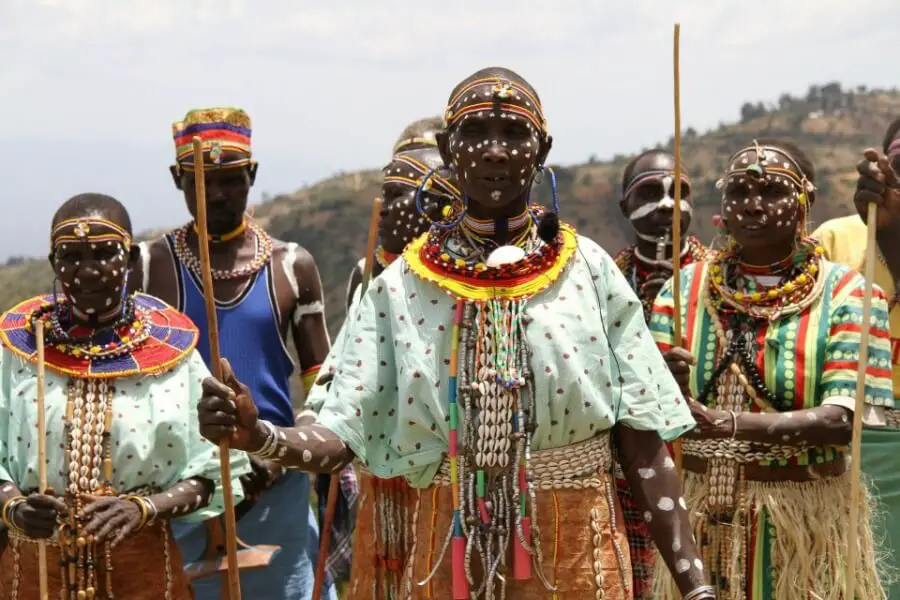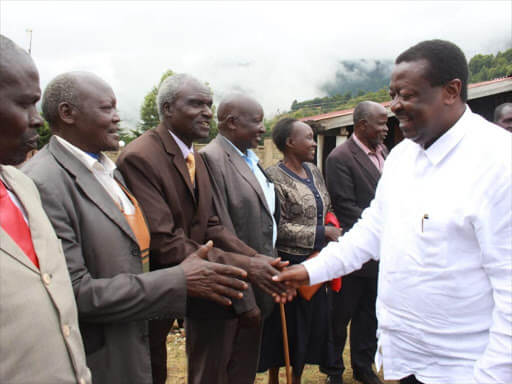Like most communities in Kenya, greeting someone in Kalenjin culture is a way of showing respect and acknowledging their presence.
Proper use of titles and forms of address is considered an important part of social etiquette.
If you’ve come across a Kalenjin and found yourself wanting to throw some Kalenjin greetings, here are some useful greetings to say:
1. How To Say Hello In Kalenjin
Eeh (then mention the name of the person) – Hi
Eeh (Name) – Hello
Oamune Koria subui (Iomune; Singular) – Good morning
Oamune Koria langat (Iomune if talking to one person) – Good evening
Iomune/ Oamune koria beet– Good afternoon
Beet Nemie- Enjoy the rest of your afternoon
Lang’atut nemie- Goodnight
Lang’atut nemie– Enjoy the rest of your night
Bichon/ Bichu/ Eih!!- Hey there!
Kalia? – What’s up?
Iomune – How are you?
Kongoi amu kebunu– Thanks for passing by
Ngoro chelelach? / Lene emet? – What’s new?
Ara nee? – So, what next?
2. How To Say Goodbye In Kalenjin
Saisere– Bye
Saisere- Goodbye
Sait age- Later
Ketuiye sait age- See you later
Ketuiye komolo– See you soon
Ketuiye kasar kitigin- See you in a while
Mutyo, lakini ne awo– I’m sorry, but I have to go
Ketuiye mutai (Or ketuiyen Karon) – I will see you tomorrow
Betut nemie- Enjoy the rest of your day
Ngoberurin Kamuktaindet- God bless you
Betut nemie-Good day

3. Other Useful Kalenjin Phrases To Use During Conversation
Iomune? – How are you?
Une tuguk? or Lene emet? -How are things?
Igase imi komie? – Are you feeling well?
Imi komie? -Are you doing well?
Ngoro ng’al chelelach– What’s new?
Tilia– Sir/ Madam
Kararan karageerin- It’s good to see you
Mie kabisa kagetuiye– It’s a pleasure to meet you
Magase ami komie- I’m not doing well
Ami komie, konkoi– I’m well, thanks
Mie amu kagetuiye– Nice to meet you
Kaineng’ung’ ko ng’o? Or Kikurenin ng’o? – What’s your name?
Nee netesetai– What’s happening?
Eeh tilia negararan– Hey beautiful
Ami komie– I’m fine
Kikoikbkasarian– It’s been a while
Mieitu tuku tugul– Everything is going fine
Itagat- You’re welcome
Lene? / Lein o/ Len o– Excuse me
Konkoi– Thank you!
Nee neisubi- What next?
Le nee gaa? – Any tidings from home?
Une/ Amune babang’ung’- How’s your father?
Une/ Amune kamet? – How’s your mother?
Boiboi biik tugul i? -How’s everyone?
Lionen biik en gaa? – What are people doing at home?
Lion bichon? – What are those people doing
Matakai agerok– It’s been long since we met
Konkoi amu kenyon- Thanks for coming
Itogotin tugul- Welcome all
Ogas omiten gaa– Feel at home
Boiboi tugul i? – All doing good?
Kiisob i? – You recovered?
Sob en chakyinet- Quick recovery
Mutyo– Sorry
Matinye ng’olio- I got nothing to add
4. Seasonal Greetings
Kirismas netala– Merry Christmas
Ista netala- Happy Easter
Kenyit nelel nebaibai/ nemie– Happy New Year
Betutab siget nebaibai– Happy Birthday
Arawet bebaibai– Happy New month
Lene emet? – Seasons greetings
It’s that simple! So, the next time you meet a Kalenjin with this handful of greetings, you can hit a nice conversation.
Just be sure to use proper titles and forms of address as we mentioned because this is an important part of social etiquette.
Related:

